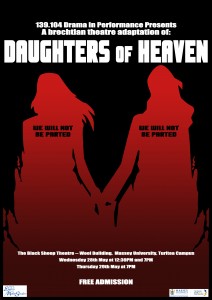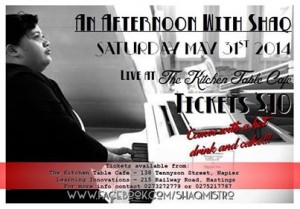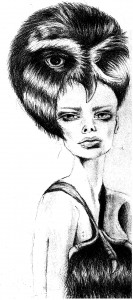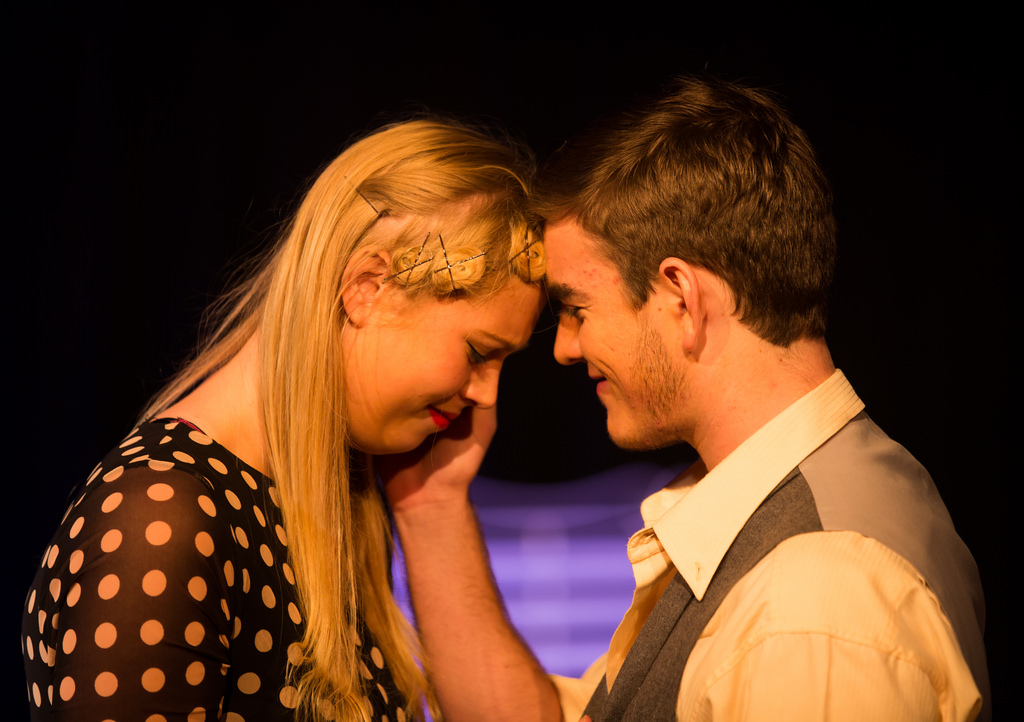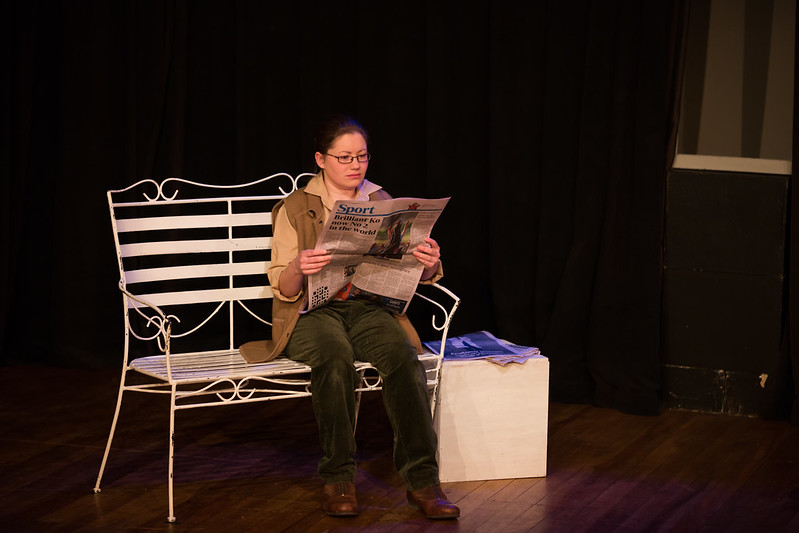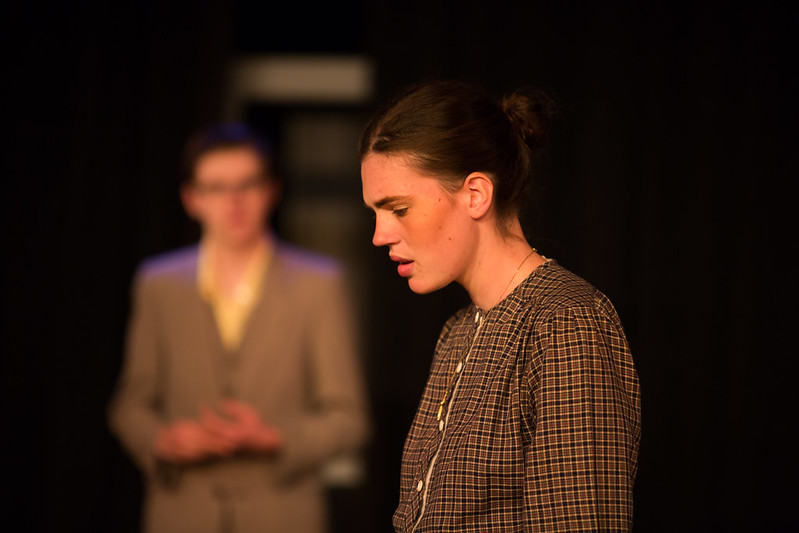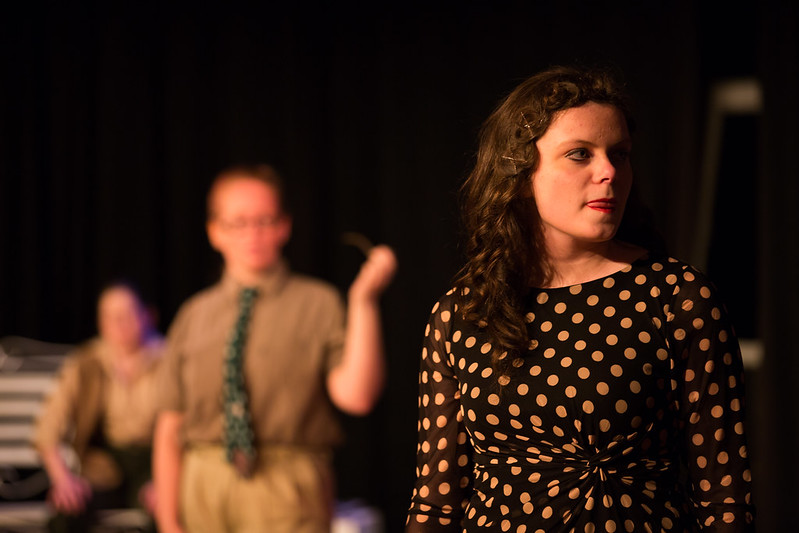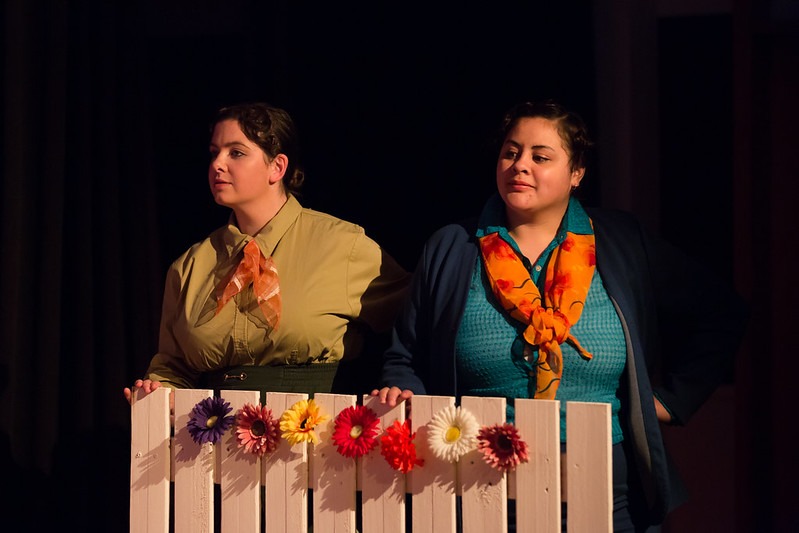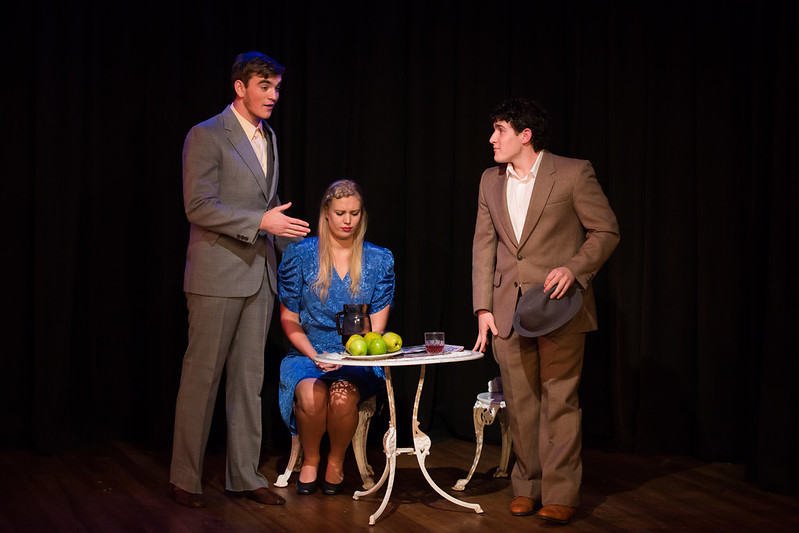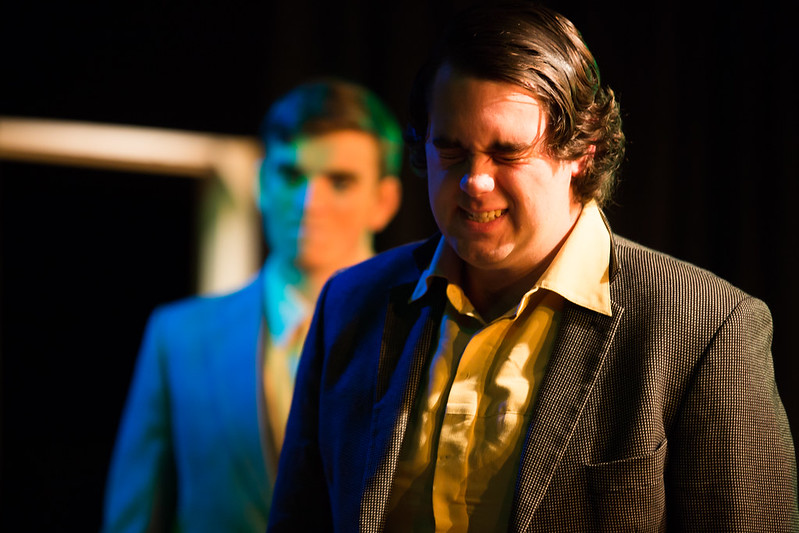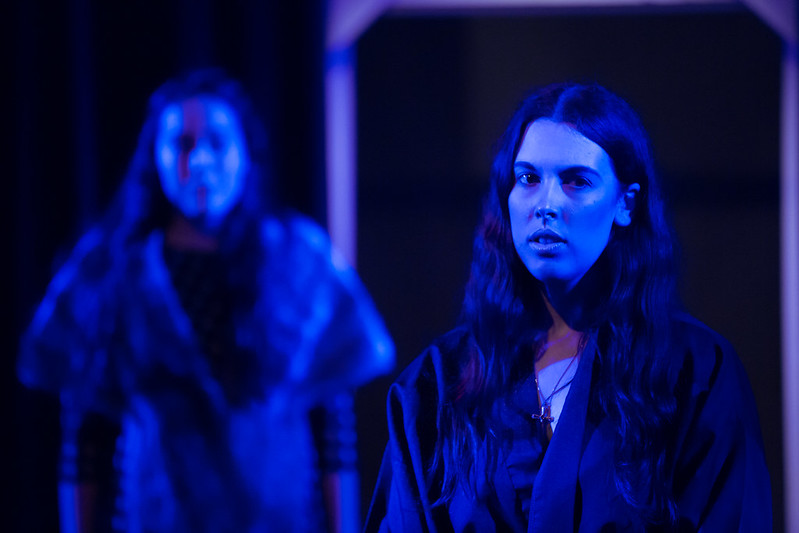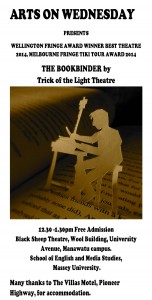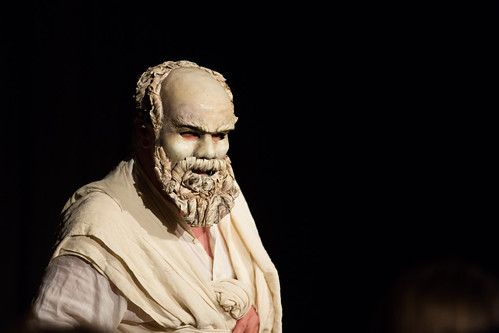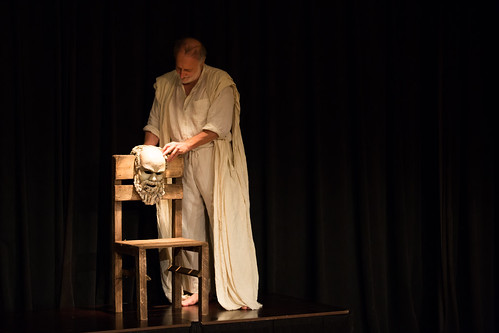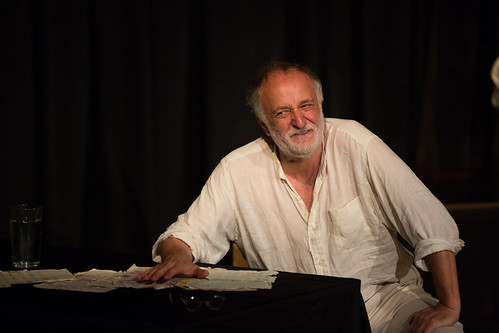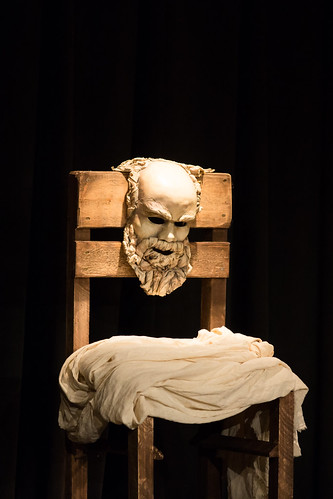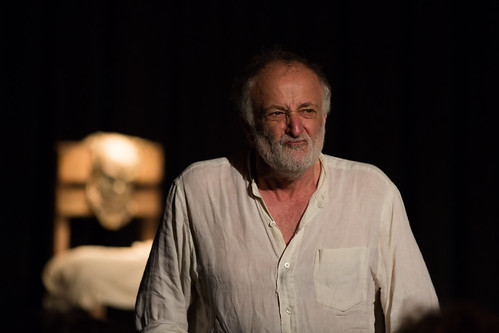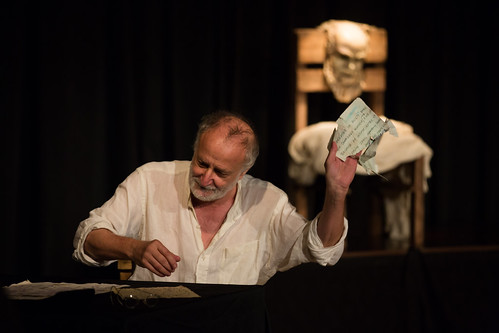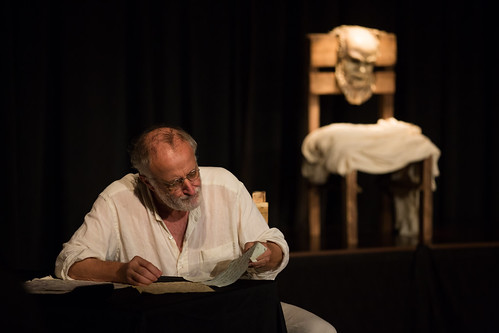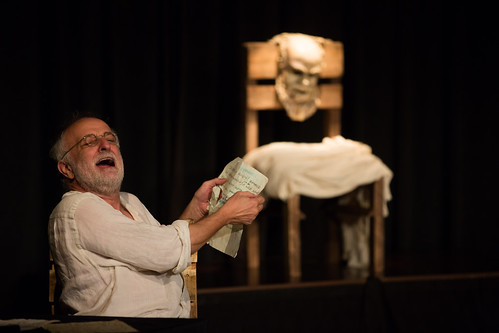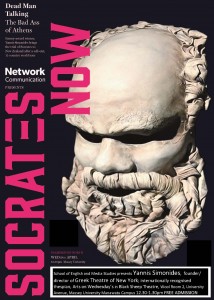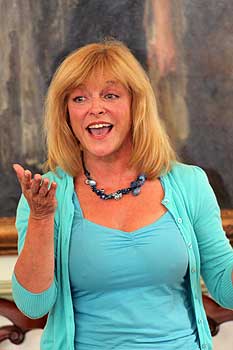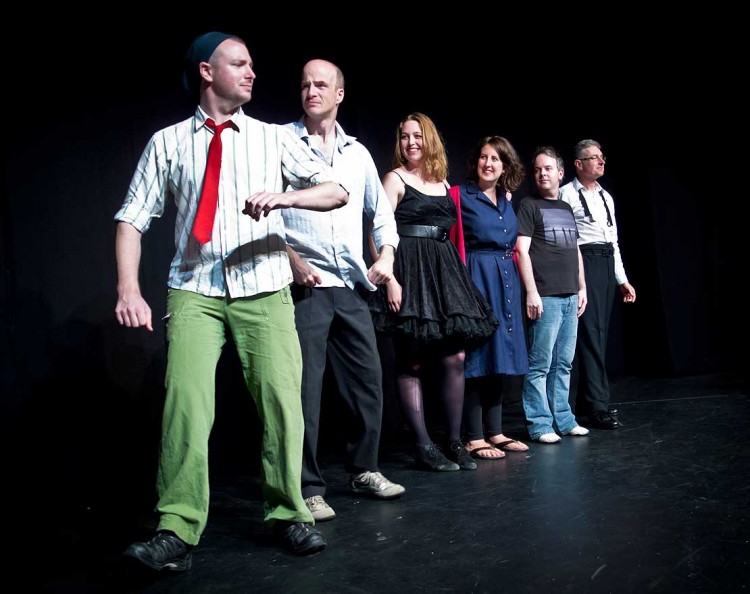Editorial
Welcome to the second edition of NUTS NZ – the Newsletter for University Theatre Studies New Zealand. The purpose of the newsletter is to help us communicate more effectively as a community of scholars interested in Theatre and Performance. The annual Australasian Theatre and Performance Association (ADSA) conference ‘Restoring Balance: Ecology, Sustainability’ is fast approaching. The conference is co-hosted by Massey and Victoria Universities and will be held in Wellington from 25-28 June. The ADSA Conference has always payed particular attention to postgraduate students. The conference will feature a special ECR and Postgraduate day. There is also reasonable accommodation offered at the Tapu Te Ranga Marae at only $15 per night for conference delegates. Please help spread the word so that we can get as many postgraduates at the conference as possible. Please also spread the word about the Philip Parson’s Prize for Performance as Research. Applications are due by 30 May.
Don’t forget that as part of the ADSA conference NZ delegates get together and share a meal. This is an important opportunity to connect with each other. The conference organisers inform us that the New Zealand Delegates dinner is booked for the night of Wednesday the 25th of June at the Kelburn Village Inn. Mark the date in your diaries. It will be great to catch up in person and share news, stories and food.
The ADSA Conference will also feature a public performance by renowned international performance artist Violeta Luna. The performance will be staged on Thursday 26th of June from 7pm, in The Grand Hall, Massey University Wellington Campus. Violeta will perform her confronting and innovative multimedia/physical theatre/social activism work about genetic modification and its impact on indigenous peoples in a free public show.
Thank you to all of you who have provided material for this edition and we look forward to working with you throughout the year to ensure NUTS is informative and useful. Below is a reminder of when our next issues will be “published” and the dates by which all relevant information is required. Submissions for the following editions should be sent to the NUTS NZ editor Jane Marshall: j.g.marshall@massey.ac.nz
NUTS NZ editors: Jane Marshall and Rand Hazou.
| Newsletter Issue |
Information Required by |
Date of Circulation |
| Issue 3 |
31 July 2014 |
15 August 2014 |
| Issue 4 |
31 October 2014 |
30 November 2014 |
NUTS People
In each edition of NUTS NZ we will be profiling an academic and a postgraduate student to show case “our people” and their current research/interests. It is our pleasure to be profiling Dr Rina Kim and postgraduate student Michelanne Forster. NUTS NZ asked each of them to answer the following questions:
- What is your research about?
- What theatre/performances have you seen recently?
- What have you been reading lately?

Dr. Rina Kim – Lecturer in Drama, University of Auckland.
Dr. Rina Kim – Lecturer in Drama, English, Drama and Writing Studies, University of Auckland
Research: My first book Women and Ireland as Beckett’s Lost Others (Palgrave, 2010) centred on the contemporary debates about emotion in social and historical contexts as represented in Beckett’s works. Building on this idea, my current research project, provisionally entitled Drama and the Embodied Mind: Ibsen, Chekhov and Beckett, is applying neuro-psychoanalytic theories to the theatre of those playwrights in understanding emotions, empathy, perception and audience response as well as the relationship between mind and body. The project aims to demonstrate that theatre presents an exemplary site to explore the interrelation of the mind and body specifically through embodied aesthetic experience. In my Beckett production, Endgame and Act Without Words II, I attempt to employ Beckett’s own idea of reaching the audience’s unconscious by constant repetition in hinting at characters’ repressed emotions and some symptoms that might be regarded as mental disorders today.
Theatre: Tony Kushner’s Angels in America by Silo Theatre. I teach the play in my Contemporary Drama course: it was a pleasure to organise group tickets for my students, and I look forward to discussing the play and the production in my class. Silo Theatre was very helpful in assisting with arranging sign interpreters as well as offering us good promotion tickets.
Reading: Incognito: The Secret Lives of Brain by David Eagleman. Beckett would have been fascinated by this book as it, using recent discoveries in neuroscience, reveals how most of what we do is generated by parts of the brain to which we have no access. It is enjoyable to read and accessible to all readers.
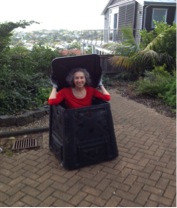
Michelanne Forster will appear in a bin in a production of ‘Endgame’ directed by Dr. Rina Kim.
Michelanne Forster – Postgraduate Student, University of Auckland
Research: My brain felt tired. Since moving from Christchurch to Auckland in 2008, I’d written five plays, two books, and taught numerous classes for U of A Continuing Education students. This was after 25 years working as a playwright, script editor for TV, lecturer at Christchurch Polytechnic and raising a family. I thought going back to university to do a one year BA Hons in Drama would be like a holiday. There I’d sit, on a sunny lawn, surrounded by the soft murmur of students earnestly discussing communitarianism, rationalism, progress and so forth. Instead I found myself hosing down a compost bin, scraping nasty spider webs and dried vegetable pulp off the insides in order to crawl inside it. Why? I had just been cast as Nell in Beckett’s Endgame and this was to be my new home. This isn’t a complaint. Going back to study is exhilarating. Every day is an opportunity to read a book or a play without feeling guilty. I’ve signed up to grapple with messy opinions and wrestle them into submission on paper. Thus far I’ve written a long essay about playing with history on the stage, (under the helpful eye of Dr. Emma Willis), and am three quarters through a new play set in Japan during the McCarthy occupation. Then there is my up and coming appearance in the bin in Endgame directed by Dr. Rina Kim. My post- graduate studies are like compost and my tired playwright’s brain is just beginning to flower again in that loamy mulch.
Theatre: Angels in America Directed by Shane Bosher at Q Theatre. A fabulous production with top actors like Gareth Reeves, Stephen Lovett, and Chelsea Preston Crayford, Mia Blake was outstanding as the Angel. I’m about to direct one of my own plays, Always My Sister with three fine actors: Chris Tempest, Torum Heng and Jess Sayer. Look out for it! (Basement Theatre June 10-21)
Reading (some recent favourites):
- Flight Behaviour by Barbara Kingsolver (rural Tennessee, poverty, smart- ass sadness)
- State of Wonder by Ann Patchett ( unlikely Amazon adventure, funny, great characters)
- Wolf Hall by Hilary Mantel (great writer, keen mind, wonderful storyteller)
- The Luminaries by Elinor Catton (our country and story, insightful prose, compelling layered storytelling)
Tribute to Prof. Howard McNaughton
by Patrick Evans
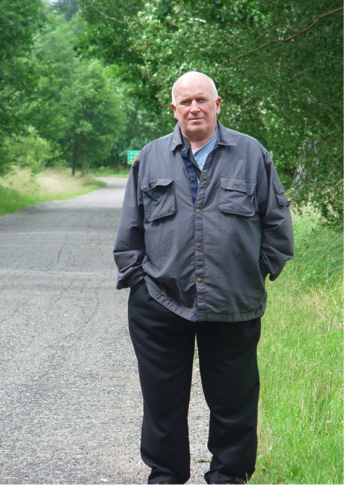
Howard McNaughton.
Howard Douglas McNaughton was born in Dunedin in 1945 with a strong Scottish ancestry evident in the blaze of auburn hair that his older friends will recall, and in an extraordinarily determined streak that no one who met him can easily forget.
After King’s High School and Otago University, where he completed a Master’s degree in Classics, he was in Christchurch for Teachers’ College (1967), after which he taught Latin at Shirley Boys’ High School. Upon acquiring a second Master’s degree, he became a junior lecturer at the University of Canterbury’s English Department, where he completed a PhD in 1975 and joined the established staff. His rise was rapid, with an early promotion to Associate Professor and, in 2005, a personal chair, by which time he had been awarded a Doctor of Literature by the University of Otago for ‘published original contributions of special excellence.’
Howard published widely in modern and postcolonial drama, specialising in that of New Zealand but, given his compendious knowledge of many world cultures, only just so. Beginning with New Zealand Drama: A Bibliographical Guide (OUP 1974), he wrote or edited nine books on this subject. He also wrote the entire Drama section of both editions of The Oxford History of New Zealand Literature, and was the New Zealand editor of the Encyclopedia of Post Colonial Literatures in English (Routledge, 2005). His interest in drama was practical as well as academic.
For years he wrote the sort of judicious, thoughtful and authoritative reviews for The Press that had actors and directors up early, anxiously awaiting the thump on the driveway. Some will remember Howard’s response to a local director agitated by his dissection of an especially dreadful production in which he coolly explained the nature of theatre criticism as a dispassionate critique rather than a personal attack. This distinction also captures the public and professional man, who, frequently, showed the discretion and judgment of a modern-day Solomon. Any reservations he felt in his day-to-day dealings tended to be channeled into a series of yarns in which his various bêtes-noir were embroidered into baroque party pieces over the years. His story of the Professor, the goat and Cave Rock was always in demand.
He will be remembered for his distinctive lifestyle – the backyard barbecue that was also an incinerator, often during the barbecuing process, the racks of post-party wineglasses being washed on the lawn under a garden sprinkler, the decaying white Volkswagen of his early days and the speeding sports cars of his later – as for his equally distinctive sense of humour. In his profound scholarship and unwavering care for the student, he represented the best of the traditional university; in his compassion, wisdom, capacity for informed judgment and vast knowledge he will remind us of what comes of a life spent reading, thinking and living in the Humanities.
Productions
As part of each issue, NUTS NZ will give readers a “heads up” of the performances that are being produced throughout the year. Here are a couple of performance events that may be of interest.
The University of Auckland, DRAMA 710 Production:
Act Without Words II and Endgame by Samuel Beckett
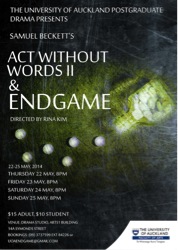
ENDGAME BY Samuel Beckett
Director: Dr Rina Kim. Assistant Director: Yalda Abnous. Movement Consultant: Dr Alys Longely
“NELL: Nothing is funnier than unhappiness, I grant you that.” (Endgame)
Rina Kim and the class of DRAMA 710 present two works from acclaimed playwright Samuel Beckett, Act Without Words II and Endgame, and invite you to join us and laugh your pain away as you take in Beckett’s tragically comical world. Act Without Words II looks at the day in, day out routines of characters A and B. Come observe the way that habit, “a great deadener”, as Beckett puts it, can be used to escape from and control symptoms that today might be regarded as mental disorders. DRAMA 710 attempt to redefine notions of normality and the label of mental disorders using this “dependency on routine” idea. Endgame presents a ruined world where four characters (Hamm, Clov, Nagg and Nell) continue to “go on” after an unspecified catastrophic event by laughing “heartily” at their own misfortune. Just as in Act Without Words II, in Endgame Beckett explores his ongoing concern with subjective point of view towards the world and life. Blind Hamm relies on Clov’s report of the outside world. We invite you to come and decide if the apocalyptic world that Clov perceives is due to his own distorted vision.
- Venue: The Drama Studio (Level 3, Arts 1 Building, 14a Symonds Street)
- Performances: 22nd – 25th May, 2014 (8pm)
- Tickets: $15/ $10 (Students)
- Bookings:
- Phone: (09) 3737599 ext 84226
- Email: uoaendgame@gmail.com
- Please advise us of the number of tickets you require, whether they are waged or unwaged and which performance you wish to attend.
- For more information, please contact Rina Kim on 373 7599 ext. 87348, or rina.kim@auckland.ac.nz.
Massey University 139.104 ‘Drama In Performance’: Arthur Miller’s play All My Sons
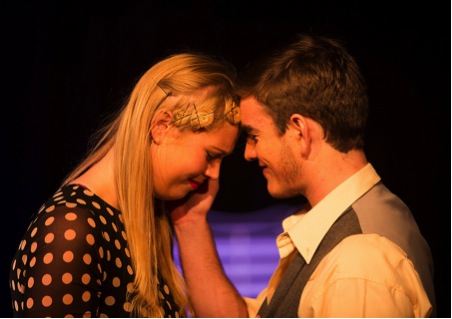
Massey Students enrolled in the paper ‘Drama in Performance’ perform in Arthur Miller’s play ‘All My Sons’ at the Black Sheep Theatre on Massey’s Turitea campus.
The 30th April and 1st may saw Massey Expressive Arts and English students in Palmerston North perform a version of Arthur Miller’s play All My Sons in the Black Sheep Theatre on Massey’s Turitea campus. The performances were directed by paper coordinator and Massey senior tutor Rachel Lenart. Written in 1947, All My Sons is based upon a true story, which Arthur Miller’s then mother-in-law pointed out in an Ohio newspaper. The news story described how in 1941-43 the Wright Aeronautical Corporation based in Ohio had conspired with army inspection officers to approve defective aircraft engines destined for military use. The story of defective engines had reached investigators working for Sen. Harry Truman’s congressional investigative board after several Wright aircraft assembly workers informed on the company; they would later testify under oath before Congress.
Waikato University Our Country’s Good by Timberlake Wertenbaker
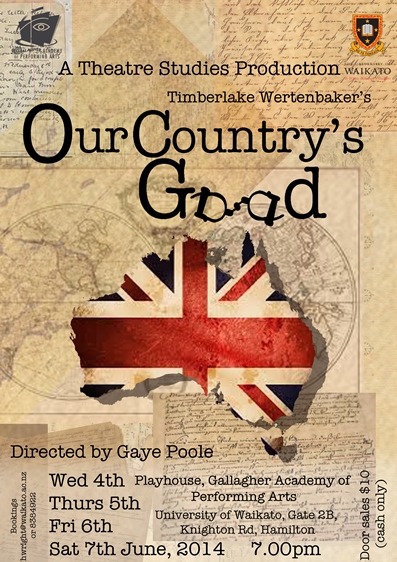
Miles from their homeland, a boat full of Royal Marine officers and convicts arrives on the Australian shore in 1789, forced to create a community in a fledgling penal colony. Amid the brutal conditions of the settlement, a resolute lieutenant volunteers to direct the convicts in a comedy, George Farquhar’s The Recruiting Officer. With little to no support from his fellow officers and his leading lady’s imminent execution, the performance is seriously threatened. Wertenbaker’s play shows what it means to live without hope, and how theatre might be an important agent in the process of forging a civil society.
”When I say Kite’s lines I forget about everything else” says Arscott, a convict. Adapted from Thomas Keneally’s best-selling novel The Playmaker, Our Country’s Good has achieved canonical status with its wealth of awards, and popularity with both amateur, professional and university companies. It won the Olivier Award for Best Play (1988), six Tony Award nominations, and New York Drama Critics’ Circle Award for Best Foreign Play (1991).
This year’s Play Production ‘company’ of 21 Theatre Studies students implore you not to miss this layered play about crime, punishment and the redemptive power of artistic practice and pursuit.
Our Country’s Good contains mature content including strong language and brief nudity.
4th Jun 2014 7:00pm – 7th Jun 2014 7:00pm
Tickets: Door Sales $10 – cash only
Prizes
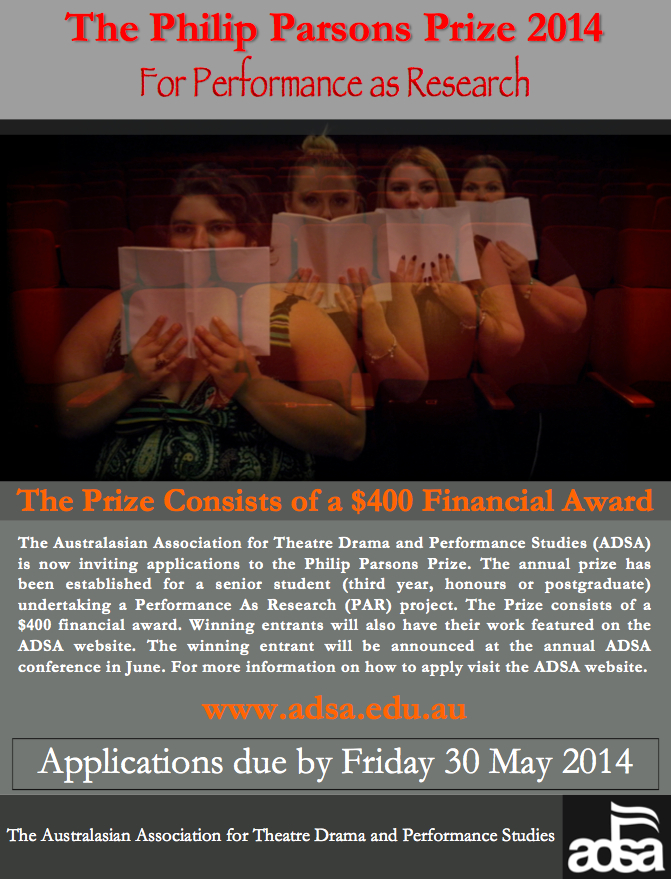
Philip Parsons Prize 2014
ADSA is inviting entries for the Philip Parsons Prize for Performance as Research. The Prize is for a senior student (third year, honours or postgraduate) who has undertaken a Performance As Research (PAR) project at a university or other tertiary institution in Australia, Aotearoa/New Zealand, Papua New Guinea, South East Asia or the Pacific Island region. The Prize consists of a $400 financial award. The winning entrant will be announced at the annual ADSA conference in June. Submission are due before close of business on Friday 30 May 2014. For more information on how to apply please visit: http://www.adsa.edu.au/prizes/philip-parsons-prize/
Publications
When Harry met Marion: Harry W. Emmet and Marion Melrose, with some notes in passing on Lydia Howard, G.R. Fleming, Baker & Farron, Arthur Branscombe, other Harry Emmetts, by Rowan Gibbs.
Wellington: Smith’s Bookshop Limited, 2014 (rowan.gibbs@paradise.net.nz)
2 volumes, 160 pages, softcover, stapled.
ISBN: 9780987668424
Price: NZ$40 (including GST and postage within NZ; A$40 incl. airmail to Australia)
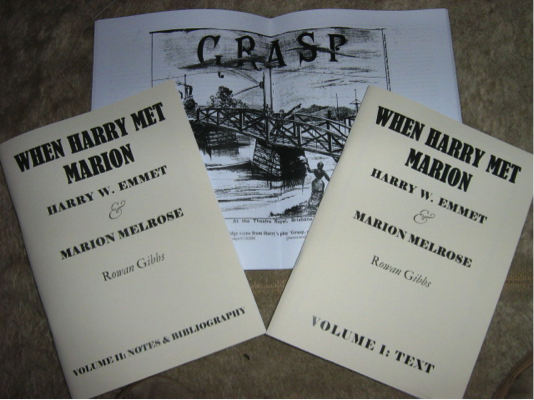
Versatility is the keynote of Harry Emmet’s stage career – actor, comedian, minstrel, singer, manager, stage manager, business manager, playwright, librettist, poet, song writer, author, press agent, journalist…
His career was mainly in Australia and America but the first record of him on stage is in Timaru in 1876; he took part in the first public performance of ‘God Defend New Zealand’ in Dunedin that year, and in 1885 wrote the libretto for ‘Angelica’, advertised as the first New Zealand opera. His play ‘Grasp” was said by the Melbourne Age to be“one of the best acting pieces ever written by a colonial author” and in America he was called “an actor of great ability, well-known and highly spoken of on the colonial stage, and in literary circles”. Harry’s first wife was the young actress Marion Melrose, “a veritable pet of the Melbourne public”, for whose tragic early death he was held largely to blame. He left for San Francisco on a ship carrying coal from Newcastle, accompanied by colourful fellow actor Arthur Branscombe – stopping over in Honolulu, where their show did not go down well – and made a career in California and then in New York, where he died in 1896.
Harry’s career and Marion’s crossed the paths not only of many of major players of the 19th century Australasian stage (Dampier, Darrell, Williamson, Rignold, the Lingards, Wybert Reeve, Grattan Riggs), but also a host of lesser known figures, and the lives of a number of these are portrayed in the notes, many for the first time – actresses Jenny Nye, Nellie Veitch, Lydia Howard (shown to be “an old friend under a new name”), acrobat Lolo de Glorian, musician David Cope, and at last we know what happened to New Zealand composer George Richmond Fleming, thought to have disappeared after the performance of his ‘Angelica’.
New information is given on some well-known, but not well-documented, figures of the American stage, including Baker and Farron, Clark and Ryman, Irene Leslie (Harry’s second wife), Harry De Lorme, Duncan Harrison, Ed J. Rue, Mary Gladstane, L.M. Bayless, James A. Reilly, and Harry Le Clair (“the Sarah Bernhardt of Vaudeville”, for whom Harry Emmet wrote two plays); not to mention Victoria Loftus and her “Troupe of British Blondes”.
